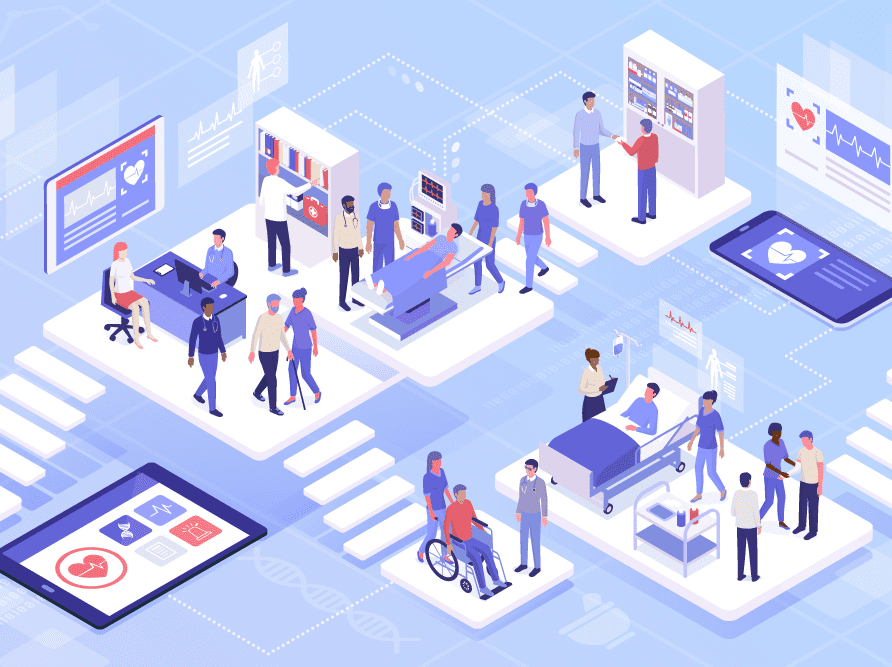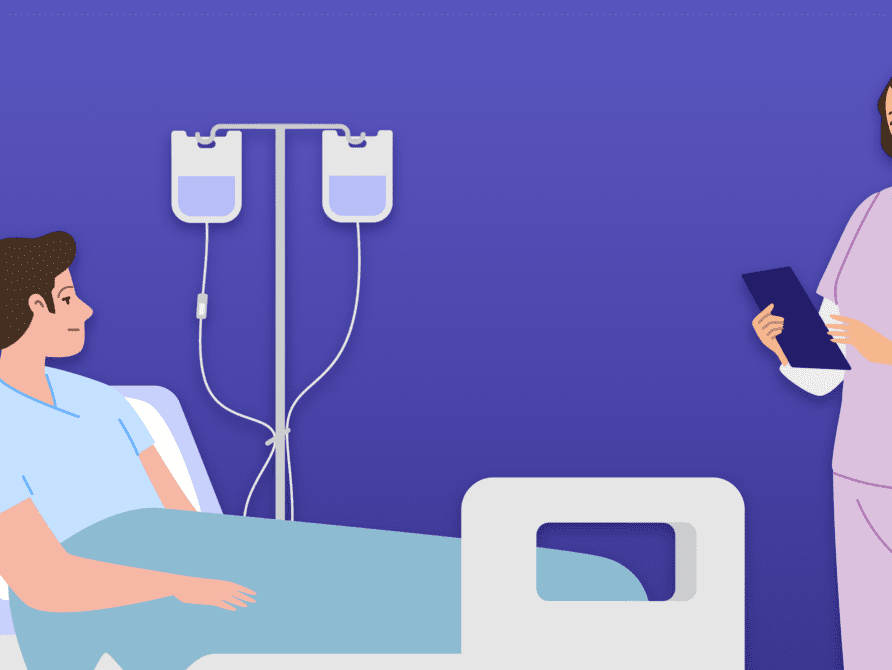Article
How nurses are helping tackle the burden of documentation
Nurses are the backbone of the healthcare industry. But with the rise of digital technology, there is now a growing demand for digital nurses who can bridge the gap between traditional nursing and modern digital healthcare. Digital nurses are essentially nurses who have developed an expertise in the use of digital technologies to improve patient care.
As we celebrate International Nurses Day, it’s important to recognise the vital role digital nurses play in delivering patient care. Digital nurses have a unique skillset that enables them to leverage their clinical knowledge by using digital technology, which can lead to improved patient outcomes and greater efficiencies.
At Altera, we recognise the value of digital nurses in supporting patient-facing digital projects. That’s why our team includes those with NHS clinical, nursing or managerial experience, representing nearly 40% of our team in the EMEA region. These individuals bring a wealth of clinical knowledge and expertise to the table, enabling us to develop digital solutions that meet the needs of both patients and healthcare professionals.
It is my belief that nurses have the right prowess to inform the design of the digital innovations clinical staff members use now more than ever to streamline care and avoid paper workarounds.
The burden of documentation
Digital nurses in the UK are no strangers to the challenges of managing documentation in a healthcare setting. Documentation is a necessary part of nursing, providing an accurate record of patient care delivered and helping facilitate communication between colleagues. However, it can be a time-consuming and burdensome task, often requiring nurses to spend more time on documentation than on delivering actual patient care.
One of the biggest challenges with documentation is duplication. Nurses often must document the same information in multiple places, leading to inefficiencies and wasted time. Fortunately, there are digital tools available that can help to streamline and organise documentation, reducing duplication and freeing up nurses’ time for patient care.
How digital helps
Before patient records were digitised, I remember having stacks of paper to complete an admission process, or patient pathways that were not intuitive and interactive. I would have to document observations on the drug chart, pain assessment chart and observation chart. Also, I spent so much time searching for that paper record that the whole team needs to access to make decisions. It wasn’t sustainable.
Electronic patient records (EPRs) can help to reduce this burden. With EPRs, there is only a need to document information such as observations once, and it is then available in the record wherever it is needed and whoever needs it, making patient care decisions quicker. This can lead to earlier treatment, reduce the length of stay and reduce suffering, such as the risk of infections.
EPRs also offer additional features to help alleviate the burden of documentation, such as activity lists, medication administration records (MARs), flowsheets, intuitive notes, care plans and care pathways. These features help nurses document patient care more efficiently, reducing the time spent on documentation and allowing more time for patient care. Observations from devices such as blood pressure and temperature machines could be pulled directly into the record at desired intervals, reducing transcription errors and delays.

The benefits of these digital tools have been seen in some of our clients. For example, patient safety can be improved by ensuring that accurate and complete documentation is available to all healthcare professionals involved in a patient’s care. Releasing time to care is also a significant benefit, as nurses can spend less time on documentation and more time on providing direct patient care, which is essential for improving patient outcomes.
One such tool is Sunrise™ Workflow Manager, which can help to organise and streamline documentation, making it easier for nurses to manage their workload. Workflow Manager provides a centralised location for documentation, reducing the need for duplication and enabling all team members to access patient information quickly and easily.
Why are digital nurses so crucial?
Digital transformation, including the widespread use of EPRs across the NHS, improves patient safety and experience. I’ve witnessed this first hand at places such as Bolton NHS Foundation Trust, which has been recognised for its improvements to patient safety by working collaboratively across clinical and digital to configure its EPR. However, having worked at many hospitals, such collaboration isn’t always commonplace, which often causes a disconnect between these groups.
This can then cause a reluctance among some clinical teams to embrace technology, and the lack of the clinical context they need to develop helpful solutions that will hinder the efficiency and safety of frontline care.
To bridge this gap, we need to invest in the digital nursing profession. When nurses hold roles at every point of care, it is only sensible to look to them to unlock a more collaborative approach to digital transformation.
The digital nurse should exist on all patient-facing digital projects and be involved in planning, delivery and optimisation—across the board. Since they spend most of their time delivering care to patients, nurses are ideally placed to identify gaps in service provision and patient safety issues while recognising which changes will have the greatest impact at the point of care.
NHS England’s chief nurse wants a Chief Nursing Information Officer (CNIO) in every organisation to help drive that digital agenda[1], highlighting the importance of the nursing voice in digital healthcare transformation.
As we look toward the summit of what healthcare can be, digital nurses have a vital role to play in all patient-facing digital projects in the NHS. They can help design and implement EPRs, develop mobile health apps and work on telehealth projects, among other initiatives.
As we celebrate International Nurses Day, we pay tribute to the contributions of all nurses, including those who are leading the way in digital healthcare.
1 https://www.digitalhealth.net/2022/03/nhs-englands-chief-cnio/













